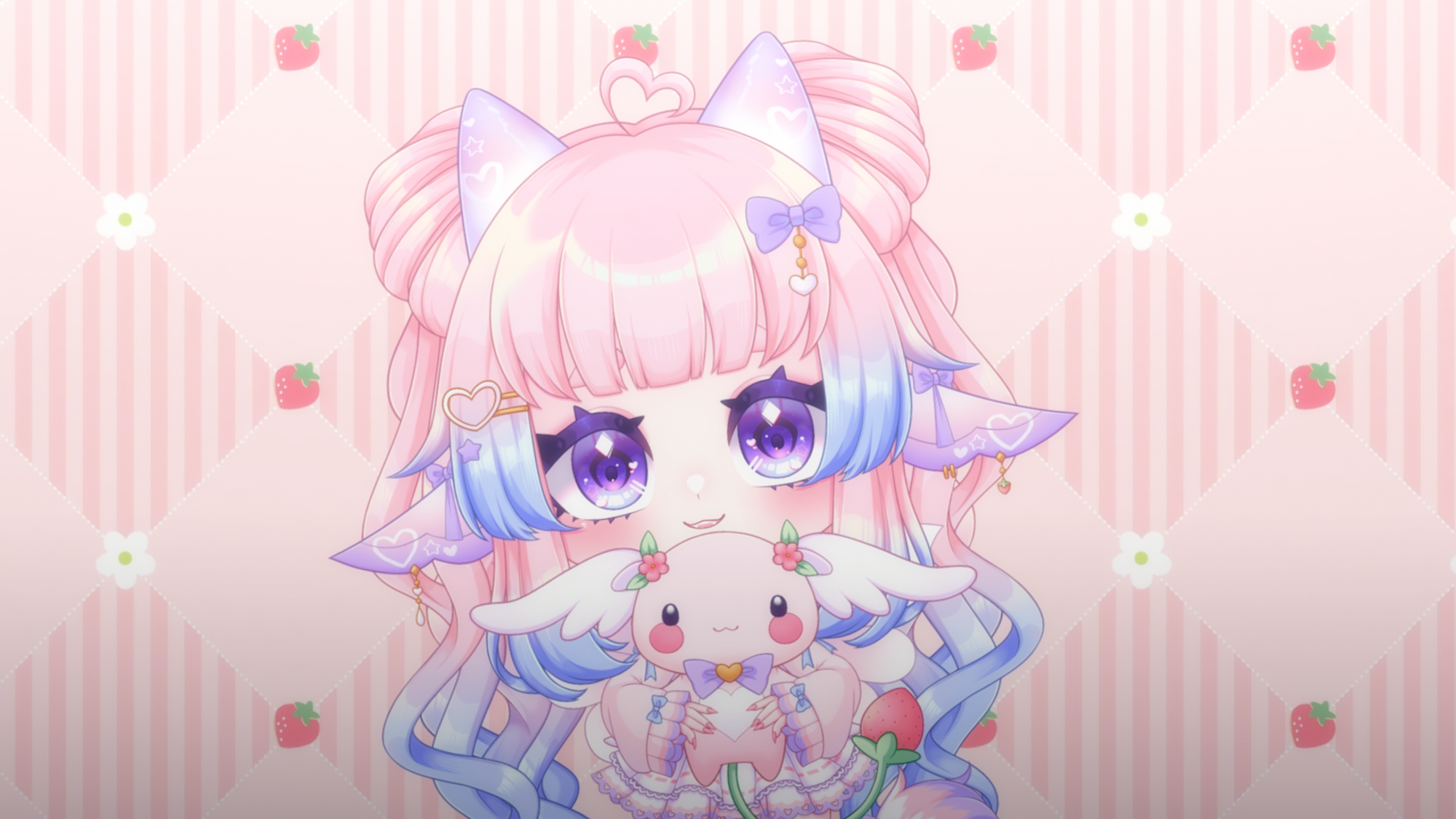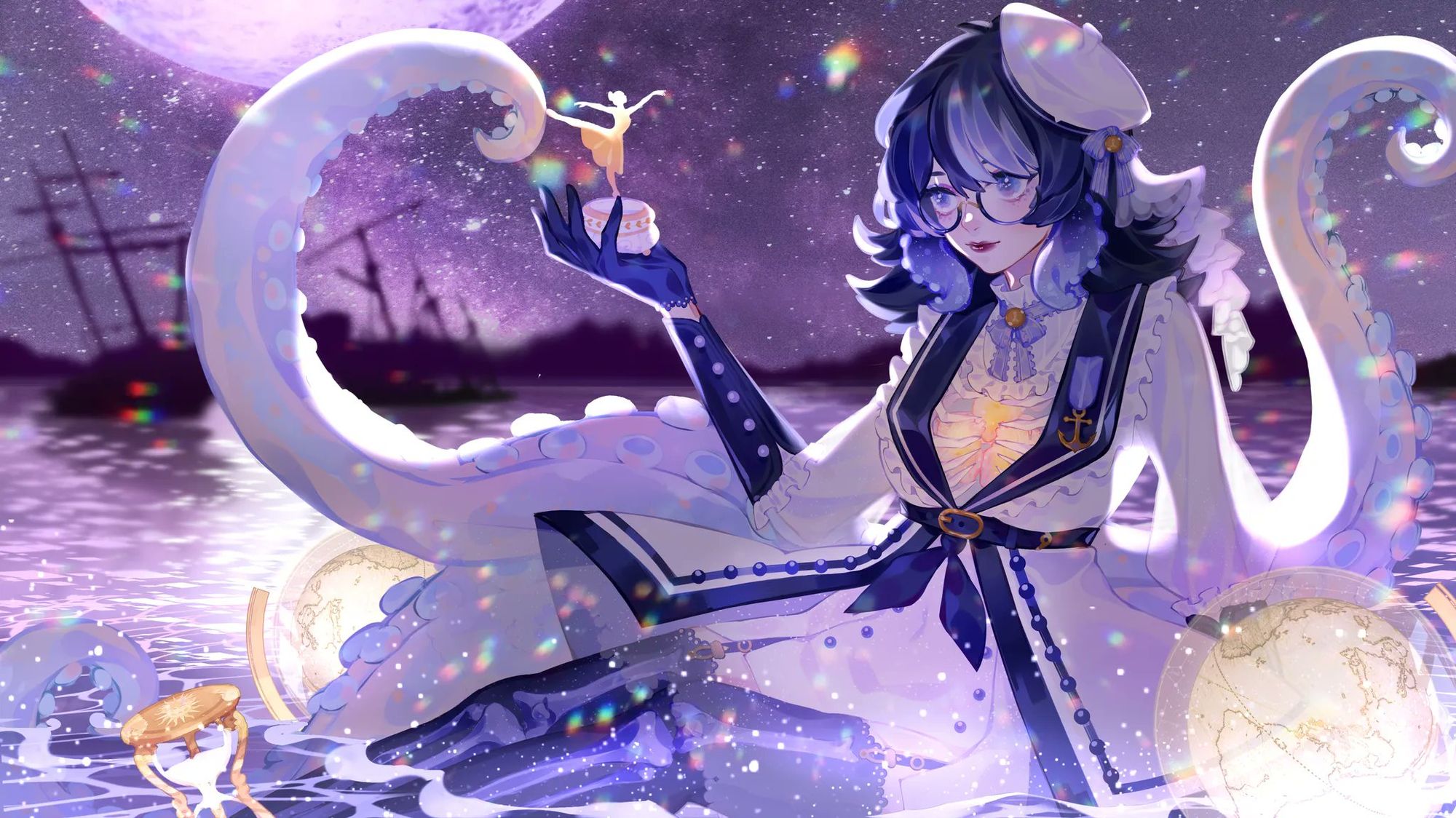Meet The DIVA✶S: Bringing Visibility to VTubers With Disability
“It's really important to advocate for a voice for those who are still suffering with self-doubt, self-blame, and so on. I want those people to know they are not alone.”
VTubing, for many, offers an escape from reality. It’s a way to live vicariously through an animated entertainer, there to offer a release in the form of good gameplay, laughs, honest discussion—or any combination of the above.
But just because the medium is an escape, it doesn’t mean life behind the screen stops. While it’s easy for able-bodied people to live out the detached fantasy, the relationship becomes more complicated when disability is involved.
Many VTubers with disability just blend into the space. Some are open about talking about their lived experiences. Most are invisible—you wouldn’t know unless you were asking. But the fact is there is, for all intents and purposes, a level playing field if you so choose.
It’s an empowering tool, but one which hasn’t been fully realized yet. There’s stigmatization around disability online, and there’s an artificial, systemic barrier deeply rooted in many communities. That’s something DIVA✶S is aiming to change.
DIVA✶S, which stands for ‘Disabilities & Illnesses Virtual Advocating Streamers’, is a Twitch stream team aimed at increasing visibility and advocacy for VTubers with disability.
The group is a catch-all for physical and mental disability, with a starting cohort of eight members with various lived experiences. It’s something founder Aurora, also known as Plushcharm, wishes they had when starting out in VTubing.
“Advocacy was always really important to me because even though I became a VTuber I still had to deal with my symptoms, which was sometimes hard to get my community or new friends to understand,” they told NewsDrop.
“I knew of many fellow disabled streamers and hoped to provide a support network in which I could share all of my resources as well as create collabs together or do charity work to spread awareness of illnesses of all kinds.”
my twitch team was accepted!! i opened "DIVA✶S" (disabilities & illnesses virtual advocating streamers) im so excited to work on this!!!
— aurora ꒰ঌ🤍໒꒱ vtuber 🌙🐉 (@plushcharm) February 23, 2023
Becoming a DIVA
The eight founding members of DIVA✶S come from an array of different backgrounds. They were all hand-picked by Aurora to start (applications will open sometime down the line). Combined the group has a reach of 30,000 Twitch followers and more than 65,000 Twitter followers.
However, there is a string that ties them all together—outside of their backgrounds. It’s their goals and aspirations, and what drove them to content creation to begin with.
“In my darkest times, it was always content creators on YouTube and Twitch that were there for me,” Himi recalled. “An escape from reality, a place I could go to laugh and forget about the rest of the world.”
In one way or another, their disability had ostracized them. There were barriers put up across every pillar of society: work, school, home, and leisure. VTubing and content creation afforded a freedom of expression unlike anything they had previously.
Lucky Pochi, a self-described silly gyaru puppy, put it simply: “I don't feel like a sick person when I’m on stream, I just feel like me.”
The same goes for the other members of DIVA✶S, who found joy through VTubing where they otherwise couldn’t in life: “I had been kicked out of college as I was unable to attend due to my physical disability,” Neko Ella said. “I spent most of my days in bed, physically struggling, being in pain, feeling isolated and alone.
“Watching [VTubers] and listening to their music gave me so much joy and something to look forward to. I wanted to be able to do that for others, and be there for others the way their content was for me, it gave my life a new purpose.”
Given this opportunity through VTubing, it was an easy consideration to hop on board with DIVA✶S when Aurora came knocking. Not only does it act as a megaphone to amplify their own voices, but it gives them a community of like-minded people who can relate to your lived experiences, and be supportive regardless.
“[Aurora and I] bonded a lot over the past couple years over sharing some conditions,” Riona said. “It kind of made me realize how important it is to have someone you can relate to. I was feeling very alone with my difficulties.
“DIVA✶S is a nice place to find others like you without the pressure of keeping up the relationships exactly like society expects.”

How VTubing Empowers People with Disability
The online realm does help with alleviating some of the barriers people with disability face. For those with physical ailments, there’s a plethora of accessibility options. Mental health-wise, you can easily integrate into a community (or curate one) without having to worry about all the stressors that can come with face-to-face, real life communication.
But in other situations it can exacerbate it. Even with a somewhat leveled playing field, there is discrimination against people with disability everywhere.
“So many conditions are stigmatized,” Ella explained. “In the real world and online, it’s seen as ‘attention seeking’. A lot of us blame ourselves when it isn’t our fault our bodies are like this.”
“Often people with privilege never stop to think about how things they don't have may afflict others,” Himi continued. “Giving disabled and chronically ill streamers a voice is incredibly important… if only to make people just a bit more thoughtful and compassionate.”
That is an important note also raised by Arashie, who also goes by Shiara: “Acceptance doesn't always equate to knowledge, which is where the real gap lies and I believe that we can fill!”
VTubing, specifically, is a powerful tool for people with disability two-fold. For some, it can be a ‘mask’—a place to hide and not have your disability entirely visible for those in society to judge and scorn.
For others, it’s a chance to be a proud advocate and showcase how people with disability are no different to their able-bodied counterparts. Their conditions have been dehumanized in other spaces, but in VTubing, they can control the narrative better.
“I am currently pursuing a double-masters degree while working full time in a healthcare adjacent field,” Arashie continued. “That's a lot but being within these spaces has shown me just how hard I sometimes have to fight to be able to be taken seriously and be given a level playing field to continue forward like my peers.
“I am made to explain myself, relive traumas, and remind others that… they cannot just write off what I'm saying under the guise of their unwillingness to put in the extra effort to understand.
“As a VTuber, I do not need to worry about my chat commenting about my dry scaly skin, nor do I have to obligate myself to act a certain way to enjoy one of my favorite hobbies!”

There is one big inspiration all the members of DIVA✶S brought up: Ironmouse. The VShojo star, with her more than 1 million Twitch followers, has raised plenty of awareness for her own conditions. Fans have become accepting of when she has to cancel a stream because of illness or a doctor’s appointment.
That high-level awareness through a big name VTuber has bled down to the smaller creators with disability: “Her being such a prominent person in the VTuber space has definitely contributed to spreading awareness of illness and disability in the community,” Lucky stated.
“I’ve never had anyone get mad at me for taking a day off because of a flare up or because I’ve had to see a doctor during the entire time I’ve been streaming. I have had some uncomfortable experiences, such as viewers sharing unwarranted medical advice as well but I do genuinely think it wasn’t from a place of malice.”
But even without the big name, there’s a lot of little things that make VTubing so special for people with disability. They can participate without feeling excluded.
“I don’t need to feel as if my body is holding me back from doing the things I love and I can portray myself as someone who lifts my self esteem instead of tanks it,” Tatsuta Fuwami explained. “I feel like I can escape from all the issues that I deal with and give myself a safe space to enjoy life in.
“While I can work a normal job, the stress it adds to my body makes streaming a more viable option for me physically and mentally.”
DIVA✶S’ big goal
The overall objective of DIVA✶S is in the name. The group of Twitch streamers want to advocate—virtually—for people with disability. They want to raise awareness of their own lived experiences, the struggles they face even when the barriers are seemingly lifted, and create a safe environment for other people with disability to interact.
“I want to bring awareness to the type of life disabled people live,” Riona said. “I don’t want it to be seen as an old time-y virtual freakshow. I want people to see us as individuals and not as our diagnosis.”
Education is a core focus of the group, according to Aurora: “Educating people on how this can impact our lives and ability to stream will hopefully help streamers be able to cultivate environments they feel safe enough in to take their time to grow, instead of feeling the need to succumb to grind culture.
“The grind culture around VTubing is almost impossible to keep up with as someone who struggles daily with physical pain and mental health,” Neko Ella elaborated. “No matter who you are or what you struggle with, everyone should have their chance to shine!”
streaming for 24 days straight is extremely draining, I enjoyed every second I got to spend with my community but I'm exhausted, my mental health is very fragile atm and my chronic pain is at an all time high due to stress flaring it up ; v ; please keep me in your thoughts..
— 𝘕𝘦𝘬𝘰𝘌𝘭𝘭𝘢 ✿ (@ComfyNekoElla) February 4, 2023
And as much as it's a group out there to support all VTubers with disability, they have one thing to do before then: looking after themselves first and foremost. DIVA✶S is an open and inclusive group, but it cannot exist without the drain of these creators having to put themselves out there.
“I hope this team can allow us all to flourish and grow both together and individually, to provide a safe place for those who feel they are in a similar situation and to let them know they aren’t alone in these struggles,” Fuwami stated.
“A lot of people dealing with chronic illness sometimes don't have this type of network to fall back on when they're hurting, tired, or not feeling up to it,” Aurora added.
“It's really important to advocate for a voice for those who are still suffering with self-doubt, self-blame, and so on. I want those people to know they are not alone.”